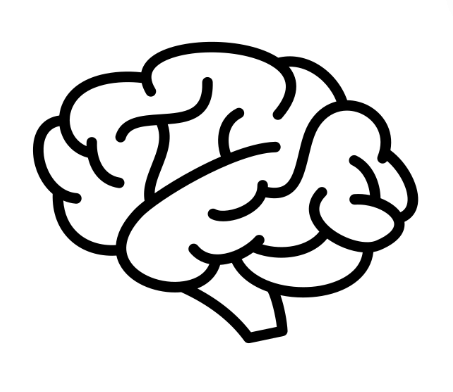IDEA @ HDRN Canada
The IDEA Team strives to benefit people who have been and continue to be systematically excluded from data research and further marginalized by the findings of data outputs. Work is now underway to establish an IDEA strategy for HDRN Canada to deliver education and training to build organizational capacity as well as identify priorities, barriers, challenges and opportunities for IDEA across the network. See the IDEA Team Terms of Reference.
HDRN Canada’s IDEA Team is composed of 30 people from each HDRN Canada Member Organization, all HDRN Canada Working Groups and Teams and SPOR SUPPORT Units from across the country. The IDEA Team is actively committed to IDEA-informed change, focusing on a range of issues, from the collection, access, use and dissemination of administrative or routinely collected data in research and across the data lifespan, to issues pertinent to the operation and co-creation of HDRN Canada as a distributed network. The IDEA Team has three goals:

IDEA Unlearning Club
A monthly meeting of HDRN Canada’s IDEA Community of Practice featuring a variety of experts exploring the process of unlearning around concepts of inclusion, diversity, equity and accessibility and their representation in health data and research.

Big IDEAs About Health Data
A public speaker series examining how data can be used to promote health equity in Canada, including disaggregated data as well as data research methods that embed inclusion, diversity, equity and accessibility. Upcoming Events

IDEA Definitions & Principles
A living document to build shared understanding of inclusion, diversity, equity and accessibility at HDRN Canada offering a baseline for enacting these concepts and principles in our collective work. Download
Elaine Alec
Cultivating Safe SpacesToya Webb
Dismantling MicroaggressionsSonia Thompson
3 Ways of Making an Inclusive Work EnvironmentSandra Moll
Psychological SafetyShanone Sport
Psychological Safety: Fostering a Sense of BelongingAmy Edmonson
Building a Psychologically Safe WorkplaceUBC Equity & Inclusion Office
Equity and Inclusion Glossary of TermsDr. Camara Jones
Allegories on race and racismIbram X. Kendi
Difference between being “not racist” and anti-racistHDRN Canada Big IDEAs Seminar
Guiding appropriate use of race and ethnicity data at ICESDr. Marcia Anderson
The Imperatives of Anti-Racism in LeadershipDr. Camara Jones
Toward the science and practice of anti-racism: launching a national campaign against racismUniversity of Toronto
LibGuide Equity, Diversity, and Inclusion curation of information on Race, Ethnicity and CultureThe Boston Globe
Anti-Racism: Skills for the Workplace NowBGC Canada
Anti-Racism ToolkitIbram X. Kendi
How to be an anti-racistMichelle Alexander
The New Jim CrowNetflix
13THRaising Equity
That’s a Microaggression: Now What?Diversity Best Practices
Being an Upstander: RacismParticipant
The Bystander EffectDr. Stephanie Nixon
What Every Health Researcher Needs to Know About Health Equity: Privilege, Oppression and AllyshipDr. Stephanie Nixon
Role of privilege in relation to public health ethics and practiceAmber Hui & Laura Bee
HDRN Canada IDEA CoP Privilege Mini-Module VideoAmy Tan & Pamela Roach
Ways to Be an AllyPeggy McIntosh
White Privilege: Unpacking the invisible backpackAccess Living
Ableism 101Amélie Lamont
Guide to allyshipHuman Rights Channel
SexismAlice Wong
Disability Visibility ProjectNational Equity Project
Lens of Systemic OppressionUniversity of Toronto
The Social Identity Wheel WorksheetEmily Ladau
Demystifying DisabilityAntoine Boivin & Farin Shore
Nurturing Inclusive Knowledge DialoguesNancy Krieger
Structural Racism, Health Inequities, and the Two-Edged Sword of Data: Structural Problems Require Structural SolutionsCharlotte Loppie & Fred Wein
Understanding Indigenous Health Inequalities Through a Social Determinants ModelDominique Comeau, Claire Johnson & Nadia Bouhamdani
Review of current 2SLGBTQIA+ inequities in the Canadian health care systemAbigale MacLellan, Marihan Farid & Zachary Ford
Am I ableist: Disability awareness in healthcareIndigenous Health Working Group, College of Family Physicians in Canada
Health and Health Care Implications of Systemic Racism on Indigenous Peoples in CanadaDr. Mary Ellen Turpel-Lafond
In Plain SightSouthern Chiefs’ Organization
Survey on Experiences of Racism in the Manitoba Health Care SystemActionable Intelligence for Social Policy
Toolkit for centering racial equity in data integrationBlack Health Equity Working Group
Engagement, governance, access and protection (EGAP) frameworkBC’s Office of the Human Rights Commissioner
Disaggregated demographic data collection in BC: The Grandmother PerspectiveBrock University
IDEA toolkitGovernment of Canada
How to integrate intersectionality theory in quantitative health equity analysis? A rapid review and checklist of promising practicesOntario SPOR SUPPORT Unit
Fairness is excellence frameworkWe all Count
Data equity frameworkGreta Bauer & Ayden Scheim
Methods for analytic intercategorical intersectionality in quantitative research: Discrimination as a mediator of health inequalities.Caroline Criado Perez
Invisible women: Data bias in a world designed for menCatherine D’Ignazio & Laura F. Klein
Data feminismLena Dencik et al.
Exploring data justice: Conceptions, applications and directions.Virginia Eubanks
Automating inequalityLisa Gitelman
Raw data is an oxymoronRachel R. Hardeman & J’Mag Karbeah
Examining racism in health services researchMonica McLemore
Reimagining methodological considerations for research studies using “big” administrative data setsCathy O’Neil
Weapons of math destructionBritish Columbia
Anti-Racism Data ActCanadian Institute for Health Information
Guidance on the use of standards for race-based and Indigenous identity data collection and health reporting in CanadaCanadian Institute for Health Information
Equity stratifiersStatistics Canada
Gender, Diversity and Inclusion HubUnité de Soutien SSA Québec
Inclusive Practices in Participatory or Partner-Based Research with Socially Excluded Persons
